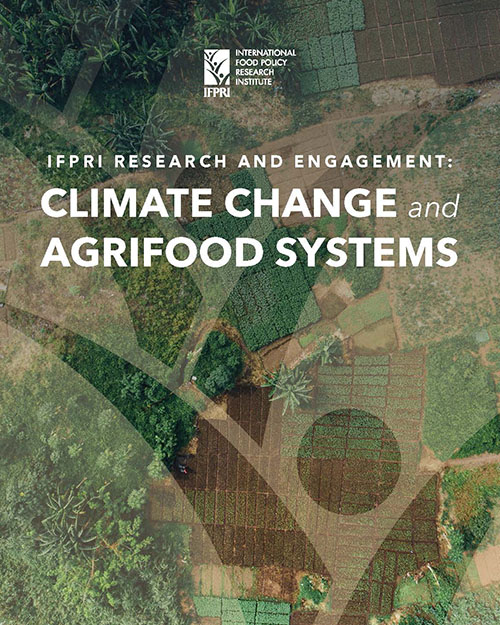
Report

Back
With research staff from more than 60 countries, and offices across the globe, IFPRI provides research-based policy solutions to sustainably reduce poverty and end hunger and malnutrition in developing countries.

researcher spotlight
Akhter Ahmed is a Senior Research Fellow in the IFPRI’s Poverty, Gender, and Inclusion Unit and Country Representative for IFPRI Bangladesh. He has worked on strategies for agricultural and rural development, social protection, and women’s empowerment to reduce poverty, food insecurity, and undernutrition in developing countries including Bangladesh, China, Egypt, India, Malawi, the Philippines, and Turkey.

Back
Since 1975, IFPRI’s research has been informing policies and development programs to improve food security, nutrition, and livelihoods around the world.

Back
IFPRI currently has more than 600 employees working in over 80 countries with a wide range of local, national, and international partners.
Climate change poses unprecedented challenges to the world’s agrifood systems. Rising temperatures, changing rainfall patterns, and more frequent extreme weather events threaten agricultural production, as well as the biodiversity and ecosystem services that underpin agriculture. Climate change also affects all aspects of food value chains, including food processing, storage, transport, and retailing. At the same time, food systems generate one-third of the world’s greenhouse gas (GHG) emissions, primarily in developing countries.
These growing climate risks impact food security, nutrition, and human health, as well as livelihoods. Because these impacts are not evenly distributed, climate change also contributes to growing inequalities by gender, socioeconomic status, and other characteristics. For farmers, climate change makes agriculture a riskier source of income, disrupts livelihoods, and contributes to hunger and malnutrition.
Current research
To help farmers adapt to climate change, increase or stabilize crop yields, increase carbon sinks and lower GHG emissions, IFPRI develops and uses research tools to support our partners in developing adaptation and mitigation strategies. Our global and country-level general and partial equilibrium models provide economywide outlooks or agrifood sector analysis on climate change scenarios and reveal how alternative policies, institutions, and investments to address climate change can benefit agriculture, food and nutrition security, and poor people. Our integrated land use and ecosystem services modeling analysis can explore ways to balance the economic and environmental performance of production across seasons and space, including crop area reallocation, increased fertilizer use efficiency, and others.
IFPRI researchers test a range of innovations for adaptation and mitigation, including through agricultural extension, social protection, clean energy use in irrigation and food value chains, and new tools for farmers to manage risk. This work is complemented by the Living Labs for People approach to low-emission food system development, building on the principles of co-production of knowledge, gender equality and social inclusion, and governance and institutional sustainability to advance existing and novel innovation processes.
IFPRI also works at the local, national, and global levels to help create an enabling environment for public and private investments in adaptation, resilience-building, and equitable low-emissions development. This includes work with communities on locally appropriate adaptations, with governments on strategic planning and investment, and with international organizations setting goals for climate change responses.
Crisis response will become even more important as climate change intensifies. Our work in this area addresses the need for better early warning systems and long-term responses that improve resilience. IFPRI’s work considers the importance of gender in responses to climate change and the need for women’s voices to be included in developing solutions. IFPRI also participates in the CGIAR Research Initiatives on Low-Emission Food Systems (Mitigate+), Gender Equality (HER+), and NEXUS Gains, which examine the linkages between water, energy, food, and ecosystems.
IFPRI’s climate change research is closely aligned with the Sustainable Development Goals (SDGs), including SDG 1, SDG 2, and SDG 13, and with the CGIAR Impact Areas on Climate Adaptation and Mitigation; Poverty Reduction, Livelihoods, and Jobs; and Gender Equality, Youth, and Social Inclusion.


Report

Journal Article
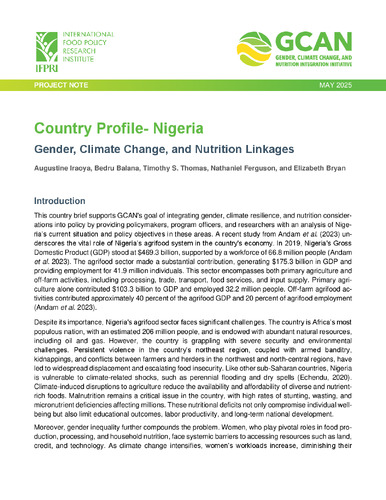
Brief

Journal Article
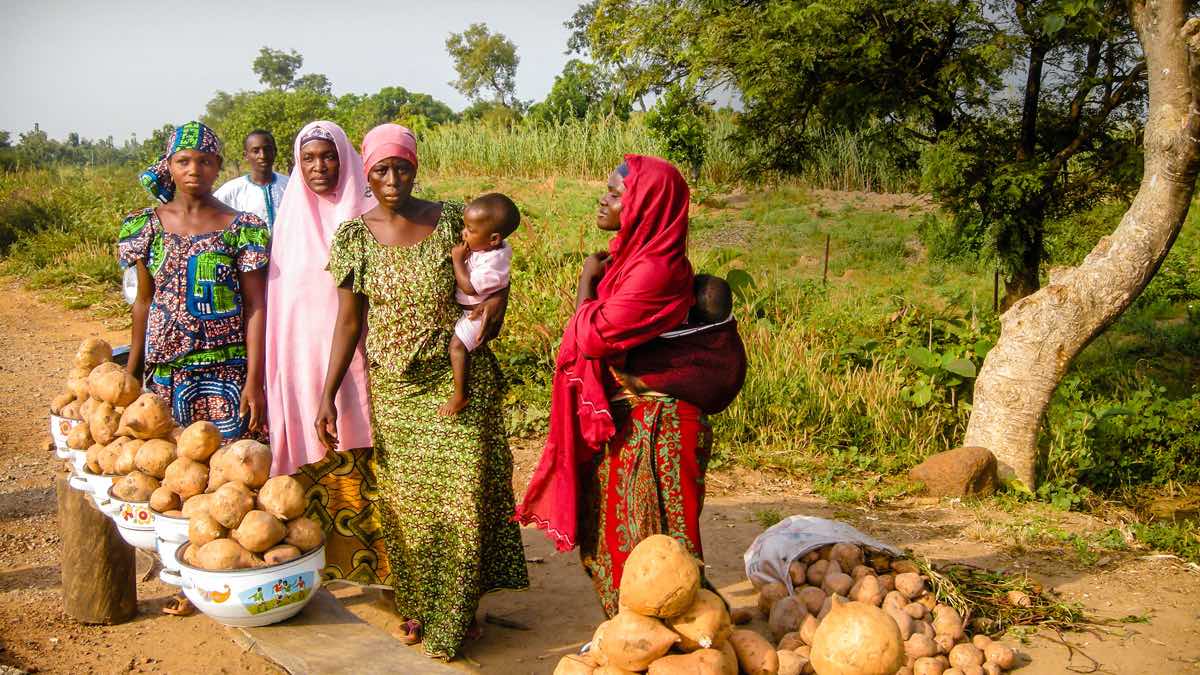
Grounding action in research and collaboration.
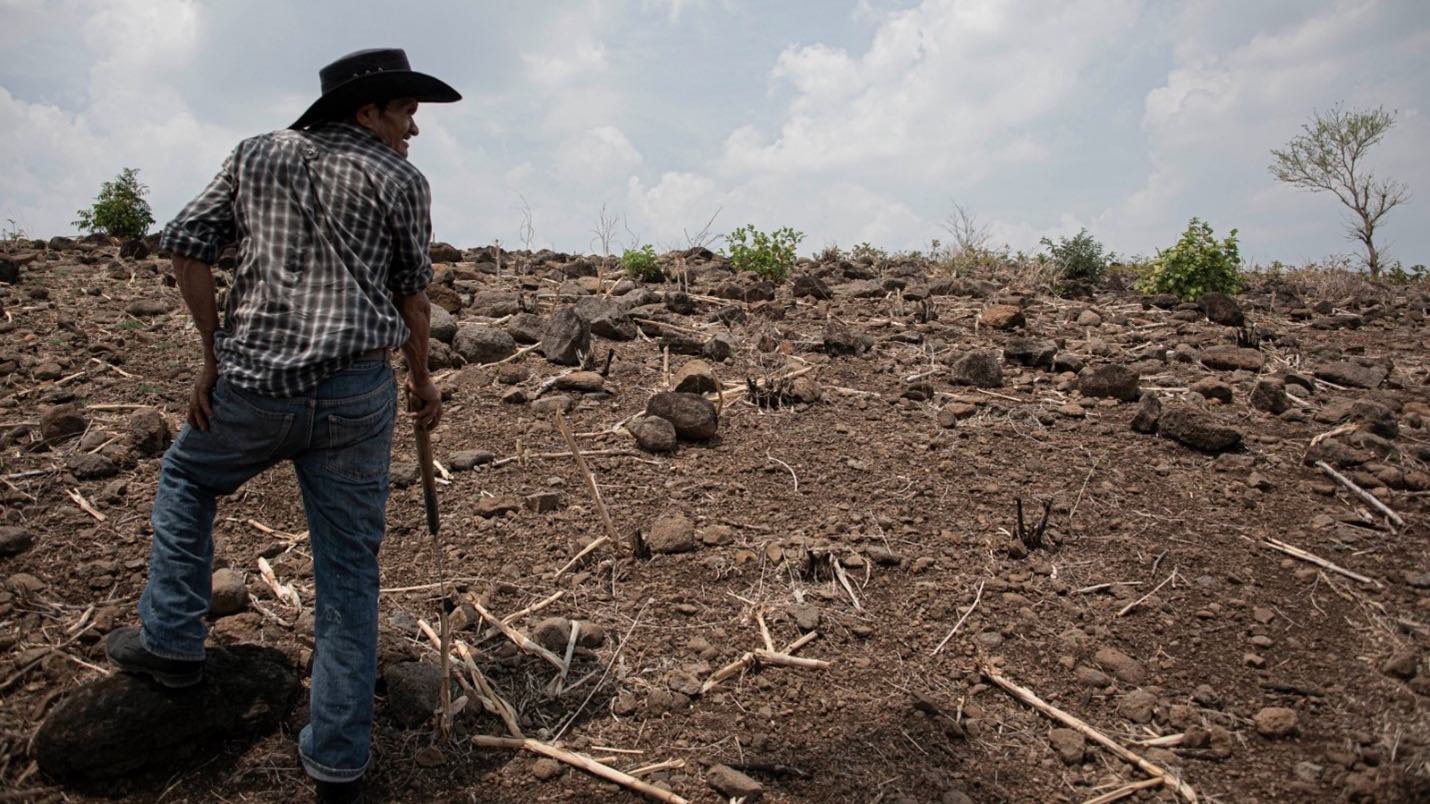
Investing in incentives to stay put.

Using machine learning to track land use.
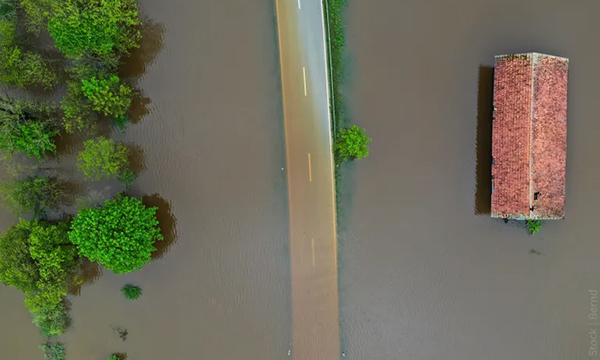
Climate policy debates tend to focus on reducing greenhouse gas emissions, the primary cause of climate change. However, climate change is expected to continue even under the most optimistic emission scenarios, inflicting severe damage. Across Europe, increasingly frequent and more severe flooding is causing significant physical damage, while rising temperatures and droughts are leading to […]
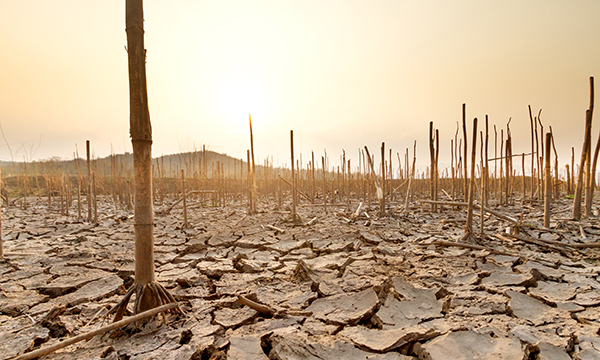
This webinar showcases two innovative approaches to understanding how economic and climate-related risks affect national economies and vulnerable populations across developing regions. The first presentation introduces an economywide modeling approach to assess economic vulnerabilities. It examines how national economies and key population groups are exposed to shocks—such as global market fluctuations or disruptions in domestic […]

When humanity has faced its greatest challenges, science and innovation have provided solutions. Today, major and connected global challenges threaten the sustainability of food, land, and water systems, with the most vulnerable people and communities at greatest risk. Recognizing the urgency of these challenges, CGIAR and the Kenyan Agricultural and Livestock Research Organization (KALRO) are […]
The global food system is uniquely vulnerable to climate impacts, making adaptation of paramount importance.
The WFP story shared by All Africa and Relief Web quotes Jan Duchoslav and Joachim De Weerdt (IFPRI Malawi) on the food security crisis in the country.
New report analyzes trade performance amid pressure points from climate change, water use, and carbon emissions, with recommendations for sustainable practices.

Director, Natural Resources and Resilience (NRR), Natural
Resources and Resilience

Director, Foresight and Policy Modeling (FPM), Foresight
and Policy Modeling

Research Fellow, Markets,
Trade, and Institutions, Latin America and the Caribbean

Associate Research Fellow, Foresight
and Policy Modeling, Latin America and the Caribbean

Associate Research Fellow, Foresight
and Policy Modeling

Research Fellow Emeritus, Director
General's Office (DGO)

Senior Research Fellow, Foresight
and Policy Modeling

Program Manager, Development
Strategies and Governance

Program Manager, Markets,
Trade, and Institutions

Nonresident Fellow, Development
Strategies and Governance

Nonresident Fellow, Development
Strategies and Governance

Senior Administrative Coordinator, Director
General's Office (DGO)